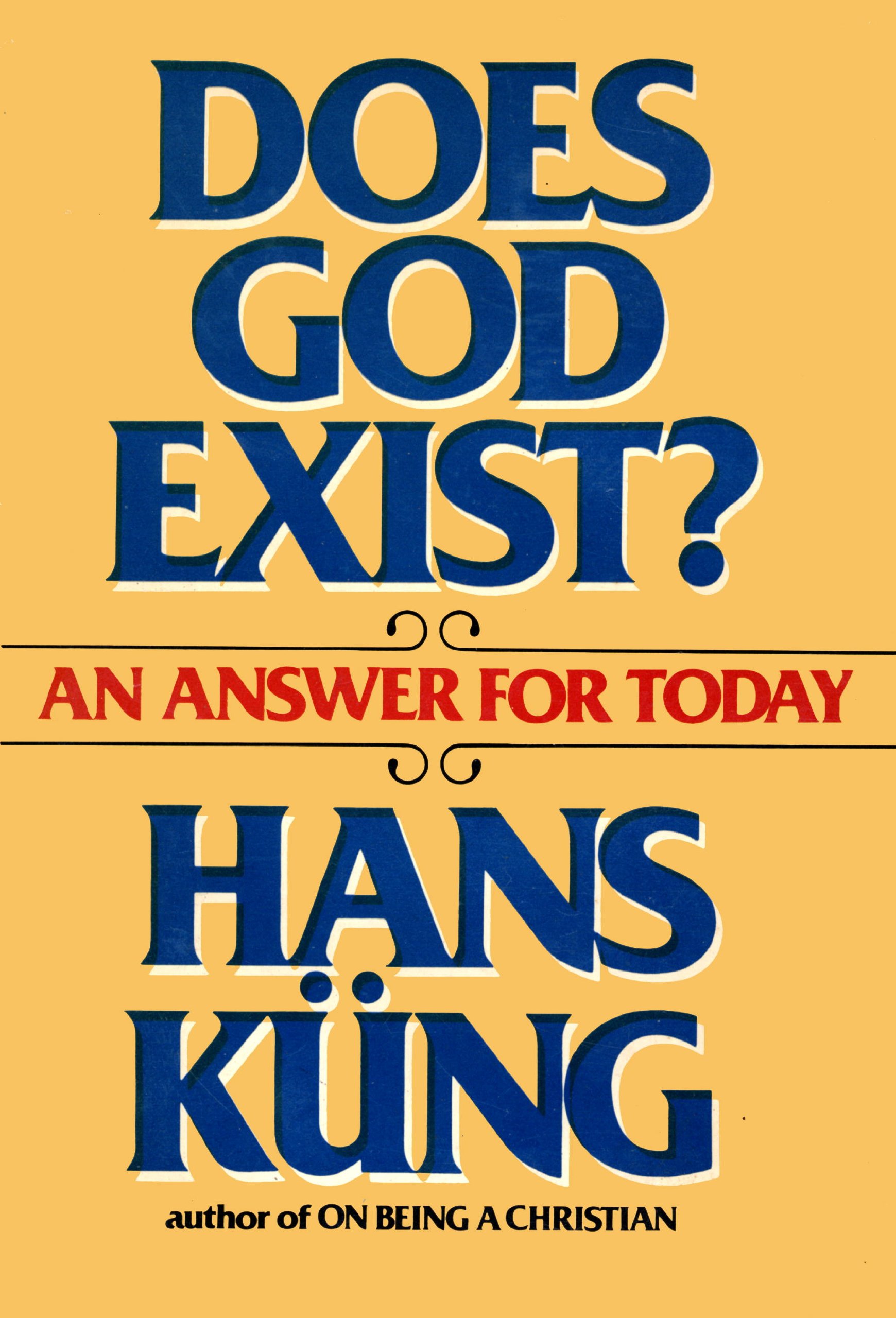Customer Services
Copyright © 2025 Desertcart Holdings Limited


Full description not available
Y**S
The Leap of Faith
I first read this book as a freshman in college and I can say that it had a primary influence on my change from having a secular worldview to a religious one. Although Kung is considered by many to be on the fringe of what is regarded as orthodox Catholicism, he nevertheless provides a great entry into religious thought -- particular for those who are coming from a non-theistic background. His encapsulation of Enlightenment thought, particularly that of Feuerbach, Hegel and others is superb and allows him the space to argue for his thesis, i.e. that in the absence of any plausible philosophical 'system', it is not imprudent to take a 'leap of faith' and presuppose the existence of God.
K**R
Cogent, Informative and Full of Excellent Ideas
This work was an instant classic for thinking believers, and should be read as well by those argue vehemently against the existence of God. The author carefully traces that status of the topic from Descartes to the present, and offers cogent, thoughtful suggestions as to why "God" is neither meaningless nor impossible to accept in the contemporary intellectual context/.
H**R
Comprehensive Intellectual Tome
This is probaly the best book I have ever read. The scholarship is peerless. Important thinkers from Nietzsche to Einstein are explicated.It is an exhuative anlysis combining theology, psychology and theology. After reading it and understanding it one has a new context and breadth of understanding to exameine the question proposed. Agnostic, believer alike will benefit from this book that every intellectual should read.
J**N
Challenging book
This book of Kung's, which are really part of a trilogy-[the other two books being On Being a Christian and The Incarnation of God], is one of the best treatments of the question of God's existence in light of the philosophical, political and religious debates and ideas that have been going on since the time of Descartes. Kung takes us into not only the thought, but also the life of various philosophers and the impact that their life had on their philosophical ideas. The question of what questions are open as a result of the undecidability theorem of Godel on one hand, and the questions raised about physical reality by quantum mechanics on the other, provide a critical crucible to reexamine the question of God's existence. Having read the other responses however, one is reminded of the statement of Augustine-to he who believes no argument is necessary, and to he who does not, no argument is sufficient. I suspect, that aside from claims to the contrary, that there are leaps that we can not avoid making, and that we are indeed caught up in the hermenutical circle described by Heiddegger. It provides a great basis for begginning dialog.
G**G
A question about God
In this very large and complex book, Swiss Catholic theologian Hans Kung attempts to give an answer to the classical question - Does God exist?Although this book was written in the 1970's, the question is pertinent today for different reasons. In Kung's time, scepticism about God tended to come mainly from Marxist thinkers, Freudian psychoanalysts and social theorists who dismissed religion as simply a special kind of group delusion used by society to keep the masses in control.With the collapse of Marxism, the discrediting of Freudian psychology as a pseudo-science, and the decline of social science in favour of quantitative forms of analysis such as economics and econometrics, these attacks on religion are no longer so important. Yet a vigorous attack on belief in God and the rationality of theism has come, this time from the scientific community.Spearheaded by Richard Dawkins but supported by people such as Stephen Hawking, Peter Atkins, Laurence Krauss, and many others, so called 'New Atheism' questions the credibility of belief simply because there is no room for it in a scientific, logical picture of the world. The scientific (rather than socio-cultural) critique of religion in the early 21st century resembles the massive rise in the popularity of science and naturalism in the late 19th century in areas such as evolutionary theory (Darwin), physics (Maxwell), mechanics and thermodynamics (Hamilton), mathematics (Gauss, Riemann, Cantor), logic (Frege), and naturalistic philosophy.Kung offers a long apologetic for God, not in terms of appeals to classical theists like Augustine, Anselm or Aquinas, or to the teaching of the church, but rather in a long philosophical and theological meditation more along the lines of Kierkegaard and Karl Barth.While the learning and scholarship Kung brings to bear is impressive, and his position well argued, he ultimately doesn't manage in my view to prove his position - that belief in God is better than non-belief. A sceptic or atheist could read the entire book and be better informed about the debates around God's existence, yet unmoved.I think this is where the weakest point of Kung's work shows itself - his dismissal of mysticism and contemplative prayer. I think including the reflections of Christian mystics and saints, while not proving God's existence, would move a person's heart more than the 700 or so pages in the rest of the book Kung develops to analysing and defending theism against sceptical attack. The truth of Hans von Balthasar's insight is perhaps lost here - Christianity doesn't mean much without a wider appeal to a person's sense of the good, true and beautiful (transcendentals).Still, Kung's long meditation deserves credit for being a profound one and a strong challenge to the faith of theist and atheist. It certainly far surpasses much apologetic writing around today, and it is lamentable that so many books on Christian theology lack the intellectual coherence and depth you find in Kung's thoughtful works.
Trustpilot
3 weeks ago
2 months ago